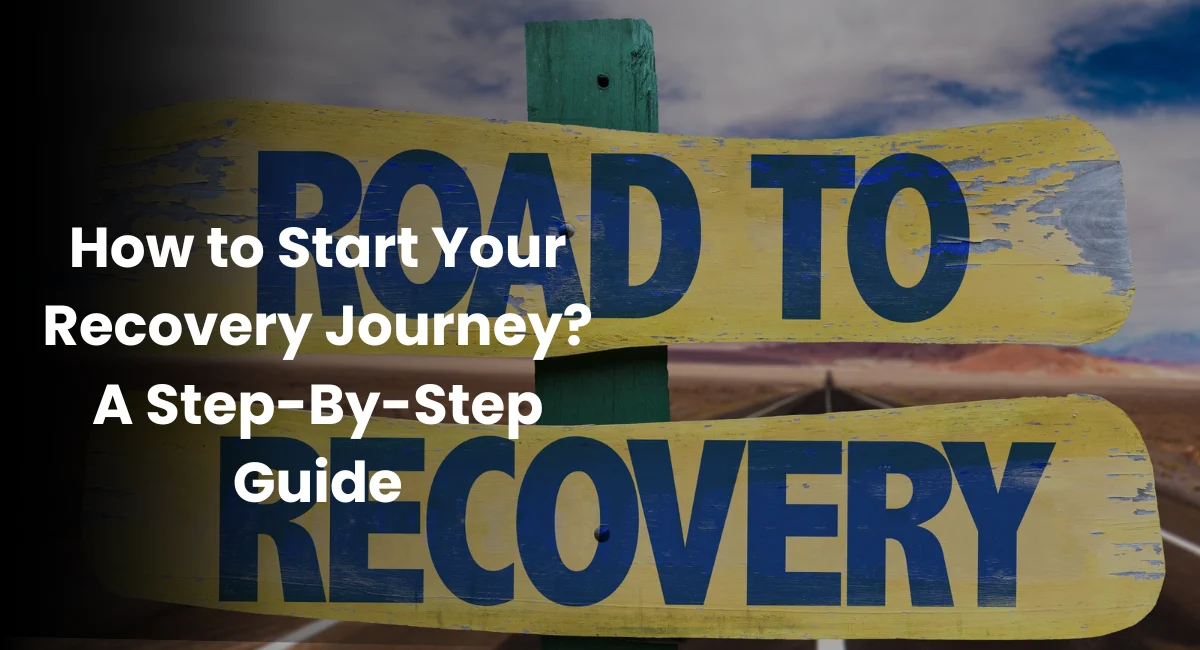We all Know That alcohol consumption is injuries to health.
So, we have only two options, the first one is "Quitting Drinking" and the second one is "Responsible Drinking".

What is moderate drinking?
Moderate drinking refers to the controlled and responsible consumption of alcohol that minimizes health risks. According to health guidelines, moderate drinking typically means up to two drinks per day for men and up to one drink per day for women. One standard drink typically contains approximately 14 grams of pure alcohol, equivalent to 350 ml of beer, 150 ml of wine, or 45 ml of distilled spirits.
Drinking in moderation can be part of a balanced lifestyle for some adults, but it’s not risk-free. Factors such as age, health conditions, medications, and personal tolerance levels play a role in how alcohol affects the body.
Moderation helps to prevent the harmful effects of excessive drinking, such as liver damage, addiction, impaired judgment and many others. It is essential to drink mindfully and be aware of your limits to ensure both personal safety and long-term well-being. Always consult a healthcare expert if unsure about your alcohol intake.
How We Promote Responsible Drinking
Limited Consumption of Alcohol
Drinking in moderation helps you enjoy social moments without harming your health or well-being. Being aware of your limits and making mindful choices can protect both your body and your relationships. Here's how to drink responsibly:-
- Understand Standard Limits : Stick to recommended guidelines—up to two standard drinks per day for men and one drink per day for women. Regularly exceeding this can lead to long-term health risks.
- Plan Ahead: Plan in advance that how many drinks you'll have. Setting a limit helps prevent impulsive and excessive consumption.
- Pace Yourself: Sip slowly to enjoy the taste and avoid quick intoxication. Stretch your drink over time instead of rushing through it.
- Alternate with Water: Drink water between alcoholic drinks to stay hydrated. It helps slow alcohol absorption and reduces hangovers.
- Eat Before and While Drinking: Having a healthy food in your stomach slows alcohol absorption, reducing its immediate impact on your system.
- Avoid Peer Pressure: Don't drink just because others are. Be confident in saying "no" when you've had enough or don't want to drink at all.
- Stay in Control: Responsible drinking helps you stay aware, make sound decisions, and avoid actions you may regret later.
- Know When to Stop: Recognize early signs of intoxication and stop before reaching your limit. Don't wait to feel sick or dizzy.
- Respect Your Health and Lifestyle: Consistently drinking within limits protects your liver, supports better sleep, maintains mental clarity, and reduces risks to your personal relationships.
Count Your Drinks
Losing track of how much you drink can lead to unintended overconsumption. Keep count. A standard drink contains around 14 grams of pure alcohol—found in 330 ml of beer, 150 ml of wine, or 45 ml of distilled spirits. Cocktails can contain more than one standard drink, so stay aware. Use apps, keep bottle caps, or check your count with a friend. Knowing your intake helps you pace yourself, avoid health risks, and stay safe. It's not about being strict—it's about being smart and staying in charge of your decisions.
Choose Quality Drinks
Selecting high-quality alcoholic beverages isn't just about luxury—it's about your health, experience, and how you feel the next day. Better quality drinks are often smoother, cleaner, and easier on your body. Here's why you should make quality your top priority:
- Fewer Additives, Fewer Regrets: Premium spirits, wines, and beers are made with superior ingredients and undergo better distillation or brewing processes. This means fewer artificial additives and impurities, which can lead to milder hangovers and reduced risk of health issues.
- Better Taste, Slower Consumption: Quality drinks are crafted for flavor. When you enjoy the taste, you're likely to sip slowly and mindfully rather than drinking just for the effect. This helps you stay in control and enjoy the moment.
- Avoid Heavily Sweetened or Low-Cost Alternatives: Cheap liquors or sugary mixers often contain high levels of congeners and artificial elements, which are harder for the body to process. This can result in worse hangovers, headaches, and digestive discomfort.
- Mindful Drinking Experience: Choosing better drinks naturally encourages you to be more intentional. It's not just about the alcohol—it's about enjoying the overall experience, which can help reduce overconsumption.
- Cost vs. Value: While premium drinks may cost more, they offer better value in terms of enjoyment and well-being. You might even drink less overall, making that extra price worth it.
Eat Before and During Drinking
Never drink on an empty stomach. Eating beforehand slows the absorption of alcohol and keeps your blood alcohol levels more stable and steadier. It helps you stay alert and avoid unpleasant side effects, such as nausea, dizziness or blackouts. Go for protein-rich foods like eggs, nuts, cheese, and lean meats, or pair your drinks with balanced snacks during the session. Food cushions your system, helps you pace your drinking and reduces hangover risks. Remember: a well-fed body handles alcohol more safely and effectively.
Say No If You're Not Feeling Well
Drinking alcohol should never come at the cost of your health or peace of mind. Knowing when to abstain is just as important as knowing your limits. If you’re not feeling your best—physically, mentally, or emotionally—choosing not to drink is an act of strength and self-care.
- Listen to Your Body: If you're feeling unwell, tired, or recovering from illness, your body is already working hard. Adding alcohol may delay recovery and worsen symptoms.
- Emotional State Matters: Drinking while stressed, anxious, or emotionally unstable can amplify negative feelings and cloud your judgment, often making things worse.
- Alcohol & Medications Don’t Always Mix: Certain medications—like antibiotics, antidepressants, or painkillers—can interact dangerously with alcohol, reducing effectiveness or causing harmful side effects.
- Lowered Immunity: Alcohol can suppress your immune system temporarily. If you're already feeling off, drinking may leave you more vulnerable to infections.
- Respect Personal Boundaries: It’s okay to say “no” to alcohol, even if others are drinking. A true friend will respect your choice without pressure or judgment.
- Confidence in Refusal: Saying no is not weakness—it's self-respect. Practice turning down drinks politely yet firmly. You never need to justify prioritizing your well-being to anyone.
- Self-Care Over Social Pressure: Whether it's a party, a get-together, or a casual evening, prioritize how you feel over the need to fit in.
- Know Your Triggers: If past experiences tell you that drinking when you’re not well leads to regret or discomfort, trust your instincts and choose to abstain.
HOW WE PROMOTE RESPONSIBLE DRINKING
Limited Consumption of Alcohol
Drinking in moderation helps you enjoy social moments without harming your health or well-being. Being aware of your limits and making mindful choices can protect both your body and your relationships. Here's how to drink responsibly:-
- Understand Standard Limits: Stick to recommended guidelines—up to two standard drinks per day for men and one drink per day for women. Regularly exceeding this can lead to long-term health risks.
- Plan Ahead: Plan in advance that how many drinks you'll have. Setting a limit helps prevent impulsive and excessive consumption.
- Pace Yourself: Sip slowly to enjoy the taste and avoid quick intoxication. Stretch your drink over time instead of rushing through it.
- Alternate with Water: Drink water between alcoholic drinks to stay hydrated. It helps slow alcohol absorption and reduces hangovers.
- Eat Before and While Drinking: Having a healthy food in your stomach slows alcohol absorption, reducing its immediate impact on your system.
- Avoid Peer Pressure: Don't drink just because others are. Be confident in saying "no" when you've had enough or don't want to drink at all.
- Stay in Control: Responsible drinking helps you stay aware, make sound decisions, and avoid actions you may regret later.
- Know When to Stop: Recognize early signs of intoxication and stop before reaching your limit. Don't wait to feel sick or dizzy.
- Respect Your Health and Lifestyle: Consistently drinking within limits protects your liver, supports better sleep, maintains mental clarity, and reduces risks to your personal relationships.
Count Your Drinks
Losing track of how much you drink can lead to unintended overconsumption. Keep count. A standard drink contains around 14 grams of pure alcohol—found in 330 ml of beer, 150 ml of wine, or 45 ml of distilled spirits. Cocktails can contain more than one standard drink, so stay aware. Use apps, keep bottle caps, or check your count with a friend. Knowing your intake helps you pace yourself, avoid health risks, and stay safe. It's not about being strict—it's about being smart and staying in charge of your decisions.
Choose Quality Drink
Selecting high-quality alcoholic beverages isn't just about luxury—it's about your health, experience, and how you feel the next day. Better quality drinks are often smoother, cleaner, and easier on your body. Here's why you should make quality your top priority:
- Fewer Additives, Fewer Regrets: Premium spirits, wines, and beers are made with superior ingredients and undergo better distillation or brewing processes. This means fewer artificial additives and impurities, which can lead to milder hangovers and reduced risk of health issues.
- Better Taste, Slower Consumption: Quality drinks are crafted for flavor. When you enjoy the taste, you're likely to sip slowly and mindfully rather than drinking just for the effect. This helps you stay in control and enjoy the moment.
- Avoid Heavily Sweetened or Low-Cost Alternatives: Cheap liquors or sugary mixers often contain high levels of congeners and artificial elements, which are harder for the body to process. This can result in worse hangovers, headaches, and digestive discomfort.
- Mindful Drinking Experience: Choosing better drinks naturally encourages you to be more intentional. It's not just about the alcohol—it's about enjoying the overall experience, which can help reduce overconsumption.
- Cost vs. Value: While premium drinks may cost more, they offer better value in terms of enjoyment and well-being. You might even drink less overall, making that extra price worth it.
Eat Before & During Drinking
Never drink on an empty stomach. Eating beforehand slows the absorption of alcohol and keeps your blood alcohol levels more stable and steadier. It helps you stay alert and avoid unpleasant side effects, such as nausea, dizziness or blackouts. Go for protein-rich foods like eggs, nuts, cheese, and lean meats, or pair your drinks with balanced snacks during the session. Food cushions your system, helps you pace your drinking and reduces hangover risks. Remember: a well-fed body handles alcohol more safely and effectively.
Say No if You Are Not Feeling Well
Drinking alcohol should never come at the cost of your health or peace of mind. Knowing when to abstain is just as important as knowing your limits. If you’re not feeling your best—physically, mentally, or emotionally—choosing not to drink is an act of strength and self-care.
- Listen to Your Body: If you're feeling unwell, tired, or recovering from illness, your body is already working hard. Adding alcohol may delay recovery and worsen symptoms.
- Emotional State Matters: Drinking while stressed, anxious, or emotionally unstable can amplify negative feelings and cloud your judgment, often making things worse.
- Alcohol & Medications Don’t Always Mix: Certain medications—like antibiotics, antidepressants, or painkillers—can interact dangerously with alcohol, reducing effectiveness or causing harmful side effects.
- Lowered Immunity: Alcohol can suppress your immune system temporarily. If you're already feeling off, drinking may leave you more vulnerable to infections.
- Respect Personal Boundaries: It’s okay to say “no” to alcohol, even if others are drinking. A true friend will respect your choice without pressure or judgment.
- Confidence in Refusal: Saying no is not weakness—it's self-respect. Practice turning down drinks politely yet firmly. You never need to justify prioritizing your well-being to anyone.
- Self-Care Over Social Pressure: Whether it's a party, a get-together, or a casual evening, prioritize how you feel over the need to fit in.
- Know Your Triggers: If past experiences tell you that drinking when you’re not well leads to regret or discomfort, trust your instincts and choose to abstain.
Think you know the facts about alcohol?
Test your knowledge and discover surprising facts about what you're drinking!
Let's Start
Latest News & Blog
How to Start Your Recovery Journey from Alcohol Addiction
Recovery is a continuous process of healing, self-awareness and growth. With the right mindset, professional...
Legal Consequences of Drunk Driving
Driving under the influence not only risks the life of the driver but also endangers...
Alcohol and Juvenile Crimes
This complex nexus requires a strong legal framework, effective enforcement, community participation and preventive strategies.

.webp)
